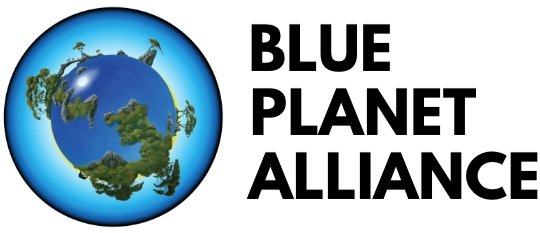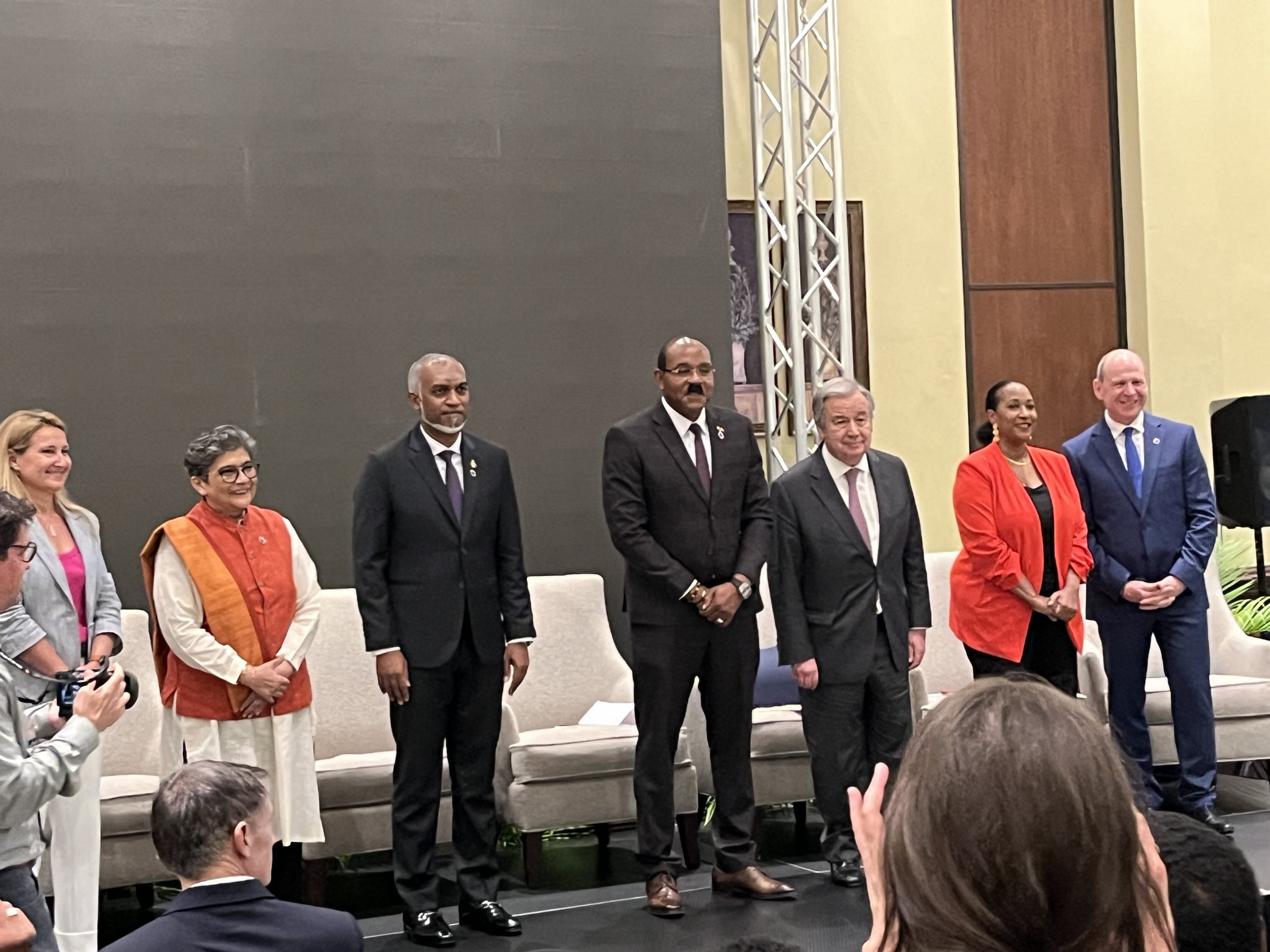Small Island Exceptionalism
The campus of American University of Antigua, host of the 4th SIDS conference.
“Small Island Developing States are exceptional, said UN Secretary-General Antonio Guterres, in Antigua last week. “Exceptionally beautiful. Exceptionally resilient. But exceptionally vulnerable.”
Whether in Samoa, Seychelles, or Saint Lucia, islands face extreme challenges brought on by the negative consequences of climate change. These Small Island Developing States (SIDS) are on the front lines of the crisis, and are the least responsible for it.
The similarities they share in navigating the crises was top of mind last month (May) in Antigua, during the 4th SIDS conference, convening 57 recognized SIDS jurisdictions (37 UN Member States and an additional 20 territories). Blue Planet Alliance was there to produce and participate in a number of official events, and meet with as many islands as possible so that we can help them transition to 100% renewable energy.
The theme of this year’s conference was “Charting the Course Toward Resilient Prosperity,” recognition that staving off rising sea levels, uninhabitable temperatures, and extreme weather is not enough: the citizens of these islands are entitled to a prosperous future, as well.
Maldives President Mohamed Muizzu, host country Antigua and Barbuda Prime Minister Gaston Browne, and UN Secretary-General Antonio Guterres, surrounded by other high-level VIPs.
As so many noted during the conference, the debt that most SIDS have incurred to address the impact of Category 5 hurricanes or cyclones — the occurrence of which is directly tied to climate change, for which they are not responsible — has stymied their economies. Once they have gone into debt to try and rebuild from the last destructive weather event, the next one occurs, putting them onto a hamster wheel of financial instability from which they cannot escape.
The centerpiece of the SIDS4 conference was the Antigua and Barbuda Agenda for SIDS (ABAS), a “Renewed Declaration for Resilient Prosperity,” intended to guide the international community’s partnership with SIDS over the next 10 years.
Restructuring and Redefining Debt
In the ABAS document, all matters of financial relief are addressed, including:
“Provide tailored support to help SIDS build resilience, taking into account their unique vulnerability to external shocks and stressors.”
“Increase SIDS’ representation and meaningful participation in the governance of the international financial architecture, including by creating dedicated seats for SIDS in their boards.”
“Reform the international financial architecture to address gaps and shortfalls so that it is inclusive, fair and responsive to the unique challenges and vulnerabilities of SIDS.”
“Implement and support the uptake of tailored solutions, such as debt for climate and debt for SDG swaps, to enable SIDS to meet their obligations while pursuing climate action and sustainable development.”
“Contribute technical assistance and expertise to support the establishment and implementation of the Debt Sustainability Support Service for SIDS to enable SIDS to manage their own debt effectively.”
“Reform credit rating methodologies to create long-term ratings, increase transparency and recognise the long-term growth potential of SIDS and the positive implications of both investment in the SDGs and measures to reduce debt distress on credit worthiness.”
ABAS also recognized that the SDG Stimulus, “endorsed by world leaders in September 2023, has the potential to be transformative for SIDS.”
Blue Planet Alliance took part in many of the events during SIDS4, including a panel hosted by our partner Island Innovations on May 28 (“Amplifying Action in the Call for Climate Justice: An Inclusive Approach for Meaningful Change”); a panel hosted by our partner Greening the Islands (“Small Islands Leading the Energy Transition”); and a panel we co-hosted with our partner Peace Boat US May 30 (“Youth Will Lead the Way,” which explored how island youth are being negatively impacted by climate change — and what they can do to make a difference). BPA also hosted an island partnership dinner, featuring high-level guests from Grenada, Antigua and Barbuda, Jamaica, Palau, Trinidad and Tobago, Maldives, Ireland, and Papua New Guinea.
The importance of this conference to its members was clear from the attendance of heads of state from a large number of SIDS countries, including Tonga (Prime Minister Siaosi ‘Ofakivahafolau Sovaleni), Grenada (Prime Minister Dickon Mitchell), Maldives (President Mohamed Muizzu), Samoa (Prime Minister Fiamē Naomi Mataʻafa, who also serves as the head of AOSIS, the Alliance of Small Island States), and of course host country Antigua and Barbuda (Prime Minister Gaston Browne), as well as UN Secretary-General Guterres.
Henk Rogers, BPA founder, at far right after speaking at our partner Greening the Islands’ panel “Small Islands Leading the Energy Transition.”
Secretary-General Guterres made clear that addressing the negative impacts of climate change are a top priority for the UN. “The UN stands with you in reaffirming your aspirations: to halt and mitigate the terrible impacts of the climate crisis, build resilient economies; foster safe, healthy and prosperous societies,” he said. “The international community has a duty to support you — led by the countries that have greatest responsibility and capacity to deal with the challenges you face.”



